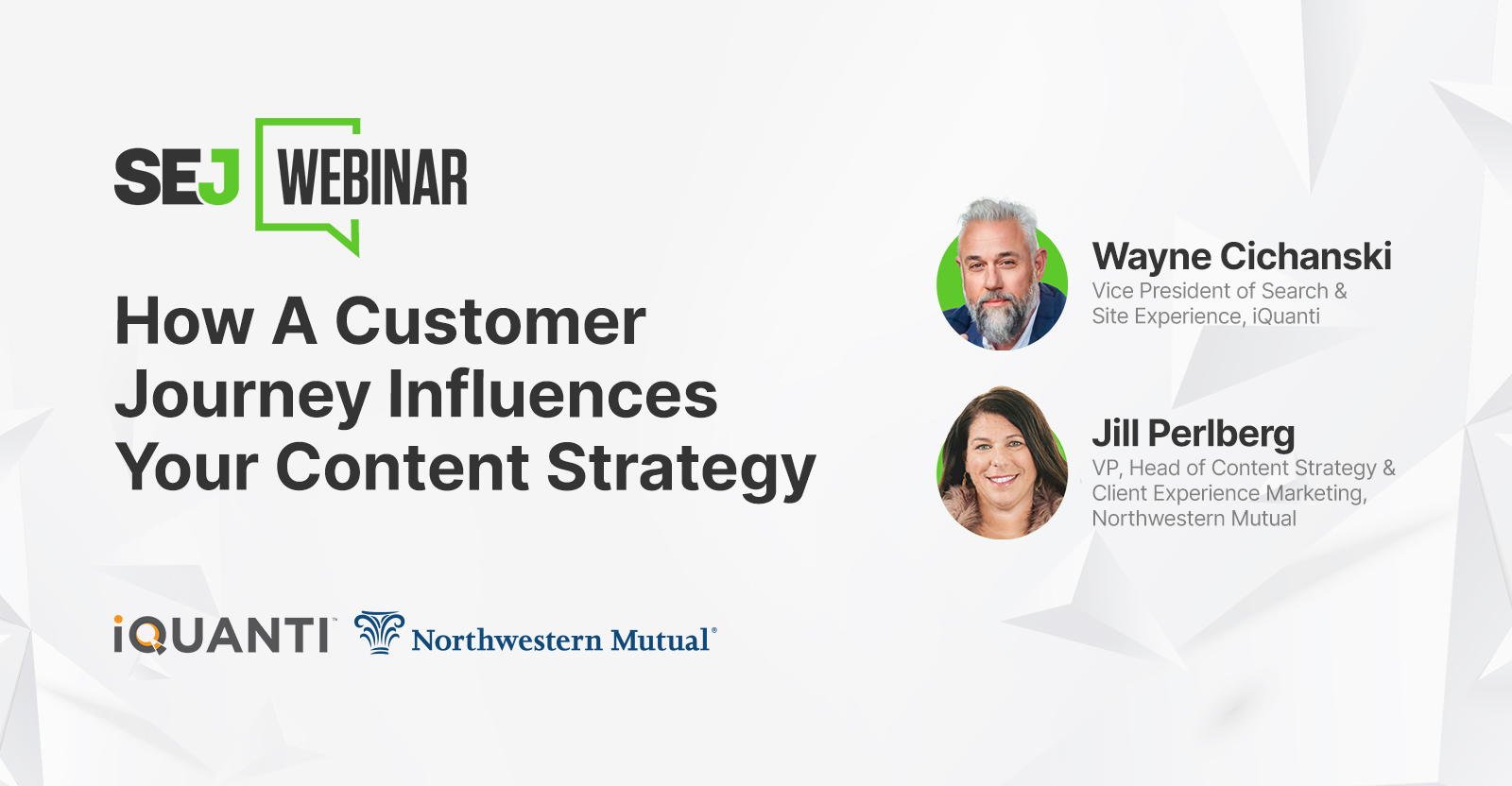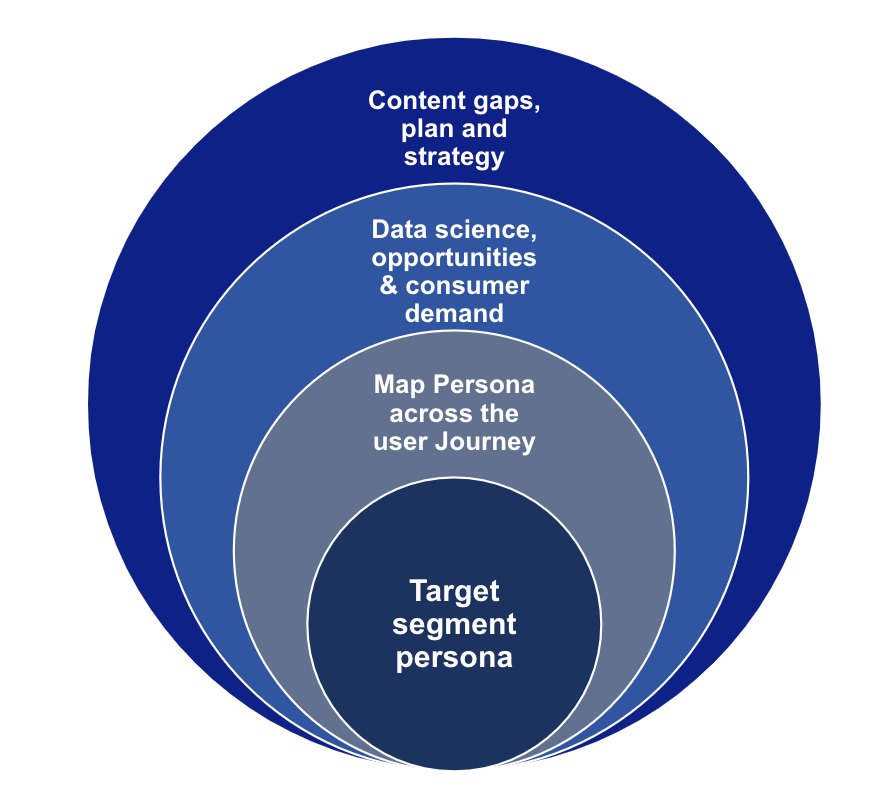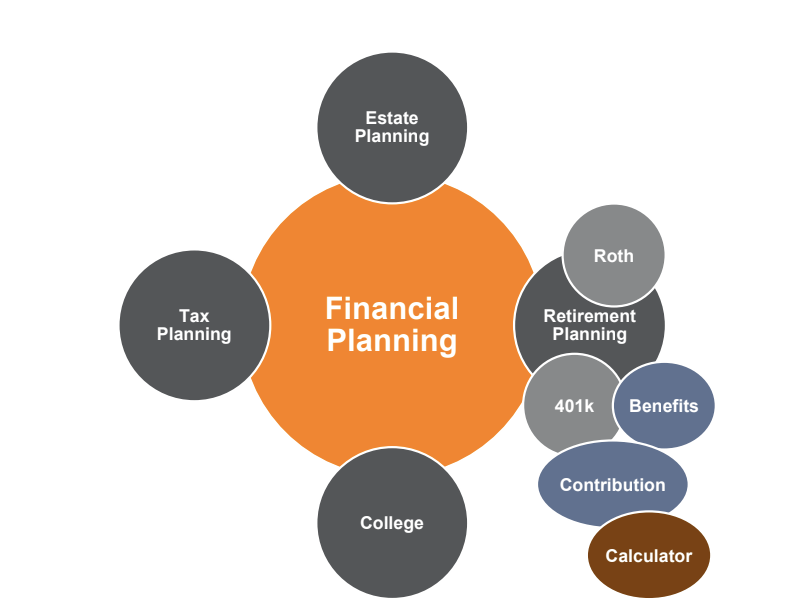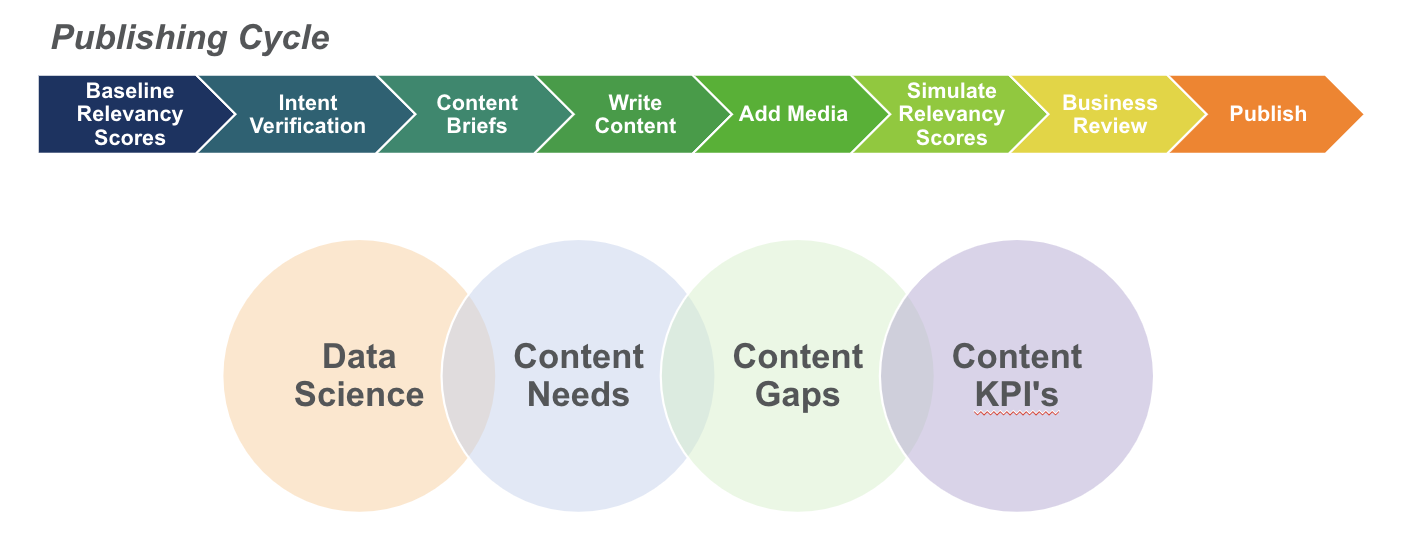SEO
How A Customer Journey Influences Your Content Strategy

Looking for ways to optimize your customer journey and drive more conversions?
Want to learn how to turn prospects into paying customers?
By mapping out each stage of the sales funnel, you can identify opportunities to refine your content strategy and convert more leads.
On March 8, I moderated a webinar with Wayne Cichanski, Vice President of Search and Site Experience at iQuanti, and Jill Perlberg, Vice President and Head of Content Strategy and Client Experience Marketing at Northwestern Mutual.
Cichanski and Perlberg demonstrated how to create relevant and valuable content for each customer journey stage, helping you move prospects from interest to action.
Here’s a summary of the webinar. To access the entire presentation, complete the form.
Key Takeaways
To move prospects from interest to action within the customer journey, you’ll need to:
- Define your market landscape: Approach your research with data science and use intent themes and clusters.
- Create your user journey: Identify the personas and apply data science to the journey.
- Calculate your content gap: Check competitors’ topical depth and map existing URLs.
- Create a prioritized content plan: Be sure to engage in side-by-side workstreams.
1. Keyword Targeting Can Help You Define The Market Landscape
Keyword landscape and theming are one of the best ways to define your market.
To do this:
- Look at your existing keyword footprint.
- Check which branded and non-branded keywords your website ranks for today. This data makes up the first component of your seed list.
- Notate your competitor’s footprints.
- Research keywords based on a head term or content cluster that neither you nor your competitors are ranking for. This will make up the master seed list.
- Group your keywords into sub-themes by intent. In the end, your goal is for one sub-theme to equal one page in your content strategy.
- Organize a hierarchy for them to create a content cluster.
[Learn what a seed list is & how it informs your success] Instantly access the webinar →
[Get an example of this process] Instantly access the webinar →
2. Create A User Journey By Understanding How A User Searches
Now that you have your data, themes, and a pulse on the competition from the previous step, you can begin to create your user journey funnel.
This will help you understand what content is needed to help your specific personas travel through your entire funnel.
- Start by compiling your targeted audience and personas.
- Understand their needs (a.k.a understand their search intent) across the entire funnel from the top (awareness) to the bottom (purchase).
- Map your persona across the entire journey.
 Image created by iQuanti, February 2023
Image created by iQuanti, February 2023This is where data science comes into play. Now you know what the consumer needs from you and what you need to deliver. Data science will tell you where the biggest opportunities for that information are.
Now, you can work to uncover:
- Where you can gain market penetration and traction.
- What’s missing in your content arsenal to meet the needs of your consumer.
 Image created by iQuanti, February 2023
Image created by iQuanti, February 2023When you know your content gaps, you will know what you need to create.
This is about being very purposeful and very intent-driven when creating pieces that match the consumer’s demand.
[Find out where to get your data science] Instantly access the webinar →
3. Build Content Clusters
Now, you can start building the strategy with content clusters.
A content cluster is nothing more than organizing your theme data hierarchically.
The idea is to engage your audience with meaningful content. When you do, your audience will continue to click, double-click, and eventually go down your content rabbit hole.
-
 Image created by iQuanti, February 2023
Image created by iQuanti, February 2023 - iQuanti, March 2023
Clusters can help you give Google the right information to help you rank holistically.
[See content clusters in action] Instantly access the webinar →
4. Calculate Your Content Gap
To calculate your content gap, you’ll have to:
Step 1. Look At Topical Depth
Topical depth is how much content you have on a particular topic. This influences overall relevancy signals at a domain and a semantic level for Google.
[How much content you should have?] Learn in the on-demand webinar →
Step 2. Check Your Competition’s Content
Observe how your brand measures up against its competitors. Are your competitors emphasizing a different stage of the marketing funnel than you are?
Step 3. Map Your Existing Pages To Your New Theme Data
You’ll want to see if you have any URLs published that match your topic cluster’s primary keyword. If you don’t have any, your strategy is missing key content.
Eventually, as you go through this exercise, it becomes very easy to discover a content gap.
[Get a tutorial] Instantly access the webinar →
5. Create A Prioritized Content Plan
Once you know what needs to be optimized, you can create a robust, sequential process for publishing content.
 Image created by iQuanti, February 2023
Image created by iQuanti, February 2023[Slides] How A Customer Journey Influences Your Content Strategy
Here’s the presentation:
Join Us For Our Next Webinar!
Google Shopping: 5 Ways AI Can Increase Ecommerce Sales and Profit
Join Malin Blomberg, CEO of Bidbrain and Google Shopping expert, as she shares the best hacks for digital marketers and ecommerce business owners to maximize conversion value.
Image Credits:
Featured Image: Paulo Bobita/Search Engine Journal





![How AEO Will Impact Your Business's Google Visibility in 2026 Why Your Small Business’s Google Visibility in 2026 Depends on AEO [Webinar]](https://articles.entireweb.com/wp-content/uploads/2026/01/How-AEO-Will-Impact-Your-Businesss-Google-Visibility-in-2026-400x240.png)
![How AEO Will Impact Your Business's Google Visibility in 2026 Why Your Small Business’s Google Visibility in 2026 Depends on AEO [Webinar]](https://articles.entireweb.com/wp-content/uploads/2026/01/How-AEO-Will-Impact-Your-Businesss-Google-Visibility-in-2026-80x80.png)











